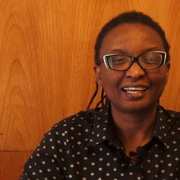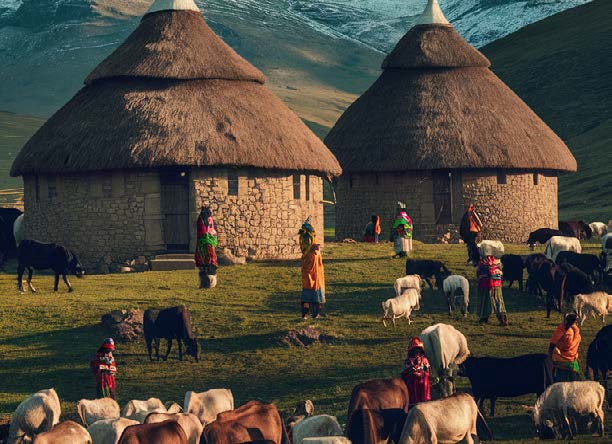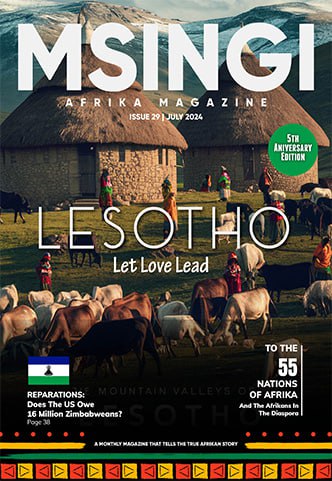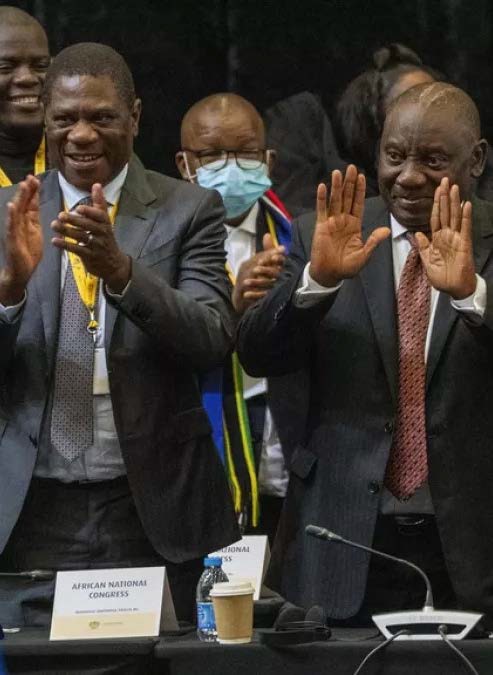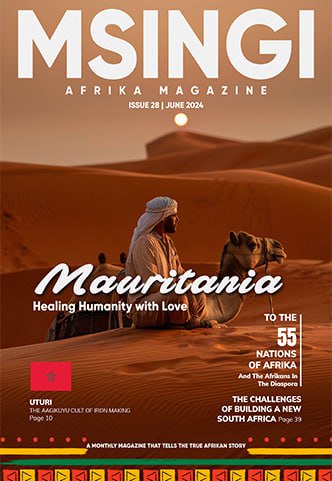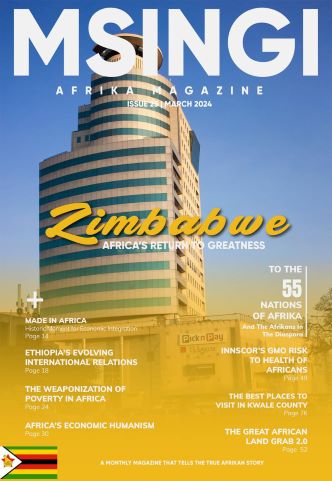Afrikan Tribes
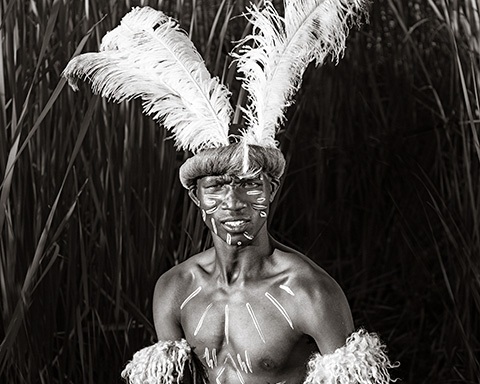
Passionate about getting God's message concerning Afrika and the end…
THE ZULU – THE PEOPLE OF HEAVEN
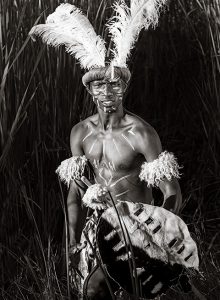
The word iZulu means ‘Heaven’ and the amaZulu, the people, are known as the ‘people of heaven’ and where they live KwaZulu ‘the place of Heaven’. That’s the kind of naming that invites the imagination to soar. The Zulu people do not disappoint. Known for their rich culture, powerful expressive dance, beautiful and intricate beadwork with hidden messages, strong fighting spirit, among others, they played a key role in the history of South Africa and continue to do so today.
The Zulu are a Bantu people and their language group, isiZulu, a part of the Nguni language group, the largest of the four major language groups in South Africa, the other three are the Sotho, the Shangaan-Tsonga and the Venda. Of the Nguni, there are four distinct groupings: the Southern Nguni, who speak Xhosa, the Swazi, the Ndebele and the Northern and Central Nguni who speak Zulu.
The Bantu speaking groups, from whom the Nguni were birthed, migrated from East Africa recently, in about the 11th Century – similarities in language today confirm this. The interconnectedness of Africa is powerfully evident.
Although many of the Zulu converted to Christianity during the colonial period, it is said that some still hold to their traditional belief systems, resulting in a mixture between the two. Ancestral spirits are regarded as important in traditional Zulu religious life, who they believe mediate on their behalf with UMveliqangi (the one who came first) on behalf of those still alive. It is also said that bad luck and illness are considered to have been sent by an angry spirit and when this happens, the help of a sangoma (traditional healer) is sought, to communicate with the ancestors and to also use natural herbs and prayers to resolve the problem. Ancestors are implored through offerings and sacrifices at key times such as birth, puberty, marriage and death using home-brewed beer and slaughtered animals. Contact with ancestors is for blessings, good luck, guidance and assistance.
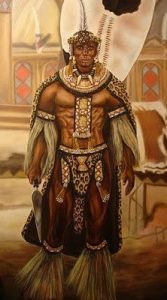
The Zulu people were not always one nation, before the time of Shaka kaSenzangakhona or Shaka The Zulu, they lived in isolated family groups and partly nomadic northern Nguni groups which moved around loosely defined territories in search of game and grazing for their cattle.
The men were traditionally the warriors and protectors of their homes and the women were involved in farming and domestic activities. Their homesteads consisted of an extended family and others attached to the household through social obligations. But this began to change by the late 18th century, with the emergence of chiefdoms and a shift away from pastoralism to more organized statehood, with compelled allegiance from conquered chiefdoms. These chiefs demanded tribute from their subjects and began to acquire wealth, command armies and subjugate neighboring chiefdoms to their rule.
By the late eighteenth century, a process of political consolidation among the groups was beginning to take place. A number of powerful chiefdoms began to emerge and a transformation from a pastoral society to a more organized nationhood occurred. This enabled leaders to wield more authority over their own supporters and to force loyalty from conquered chiefs. Changes took place in the nature of political, social, and economic links between chiefs of these emerging power blocs and their subjects. Zulu chiefs demanded steadily increasing tribute or taxes from their vassals, acquired great wealth, commanded large armies, and, in many cases, subjugated neighboring chiefdoms. Military conquest was the tool of growth and military prowess, the tool of self-promotion. These changes set the stage for the warrior-king, Shaka, to conquer all the disparate groups and unite them as one. A Zulu nation with broad regional influence that weakened after his death.
The British invasion brought division into the Zulu nation, which was further impaired by a spate of natural disasters in the late 1800s forcing the men to seek employment in the railway and the mines. Harsh terms of colonial rule and a failed uprising forced many more Zulu, men and women, into the workforce. Later, the apartheid government introduced homelands, which eventually led to the establishment of the Zulu homeland of KwaZulu, later merged with Natal province to become KwaZulu-Natal. Which is interesting because, Natal means ‘the place or time of one’s birth’… so KwaZulu-Natal could be taken to mean the place of Heaven: the place or time of one’s birth. Interesting.
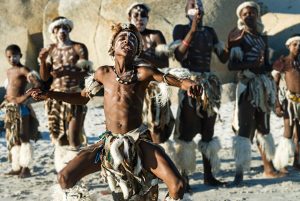
Dance has been a major feature in Zulu culture and is usually performed during traditional ceremonies, accompanied by singing and sometimes drumming. Traditionally these dances were performed before a hunt or before battle, to showcase one’s role and position in society and for weddings.
Zulu beadwork is a beautiful illustration of the cultural dynamic of this African tribe. The Zulu use their colorful beadwork to communicate with one another. The white beads only communicate spiritual purity and love, while all the other colors have a dual meaning which is either positive or negative in nature. The main shape used in the pattern work is a triangle. Each point of the triangle stands for father, mother and child. The position of the tip or the triangle (up or down) speaks of gender (female or male) and various combinations speak of marital status per gender (single or married man or woman), the state of their union, joy and pain and so on.
It is said that the Zulu believe human beings are the most superior of all species and therefore the belief in Ubuntu or a life of compassion, goodness and kindness one to another recognizing that there is a shared bond connecting humanity. (In Shona, this word is unhu, in Kiswahili, this word is Utu or compassion)
Nothing in our world is accidental, especially as it relates to how men are created and formed into nations, tongues and tribes by God. It is important for each one to know the reason why God made them the way He did, placed them in the nation, tribe or tongue He did and by aligning to that reason, a true reason to live will emerge. So to the Zulu people, our prayer for you at Msingi Afrika Magazine, is for a true return to being the people of Heaven through a true and deep powerful connection with God the Creator of All. That your warrior spirit would be used by the Kingdom of God for the glory of the King of kings who is Jesus, the Eternal.
Our Thoughts
According to scriptures, there is a strong connection between nations, tribes and tongues of the earth with redemption and by extension, worship. Revelation 7 gives a sneak view into the real reason why God made the earth a collection of nations, tribes, tongues and people. Both His salvation and redemption plan was based on this reality and the eternal worship and service before His throne will also comprise of this.
With this in mind, how must every nation, tribe and tongue on the earth realize that they are uniquely made and set in their unique regions for an eternal purpose, with no superior tribe or inferior race, and how by that realization live their lives with humility before God, knowing that there is an eternal purpose which awaits each one?
What’s About Africa?
Of a fact, men, nations and kingdoms have been coming to Africa through the ages. Some for good agendas and some, for the benefit of ravaging this continent of her goodness. But we in Msingi Afrika Magazine believe that there is a God-reason for everything that happens on earth, which includes the terrible things done to this continent of Africa and her people. In this generation, one of the biggest economic sectors for Africa is tourism. But the question is, what really is it about Africa that brings people to this continent? Is it her Zebras, Lions, Mountains, Waterfalls, Food, Riches, or is there something more deeper spiritually that attracts people to her?
Share your thoughts with us, use the contact below.
editor@msingiafrikamagazine.com What's Your Reaction?
Passionate about getting God's message concerning Afrika and the end times to the world, in order to heal, restore and rebirth Afrika to her true purpose and destiny in God.








